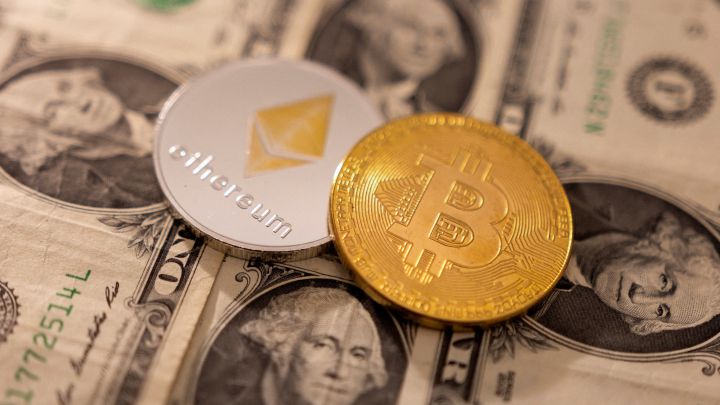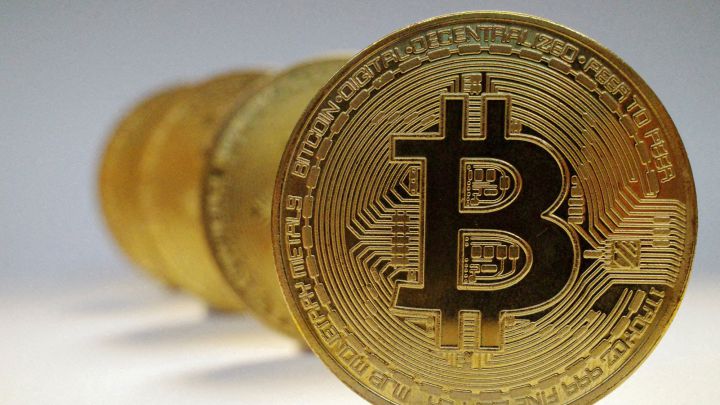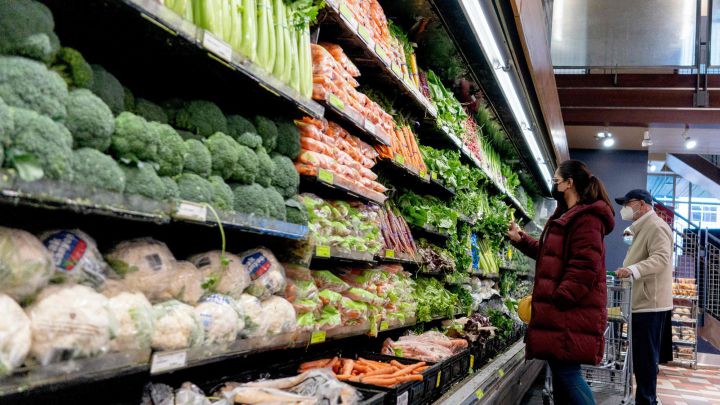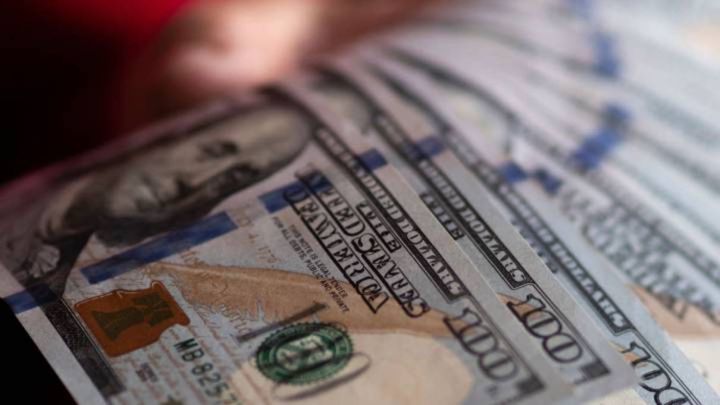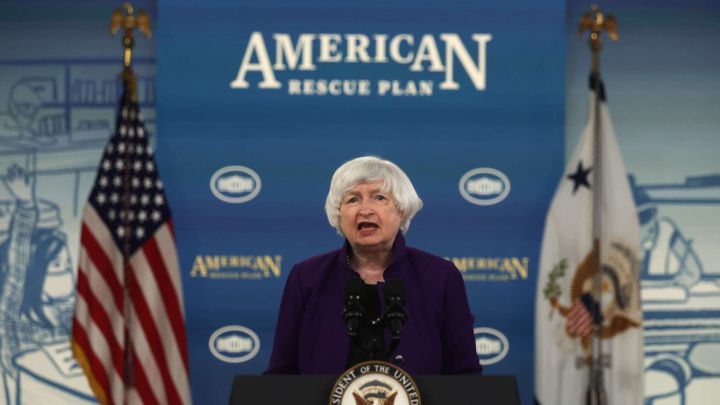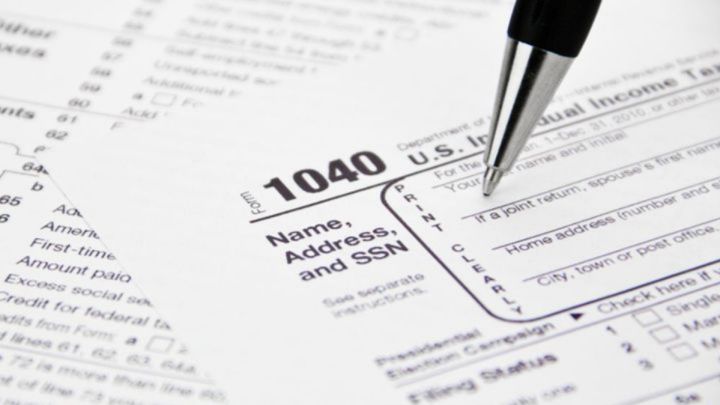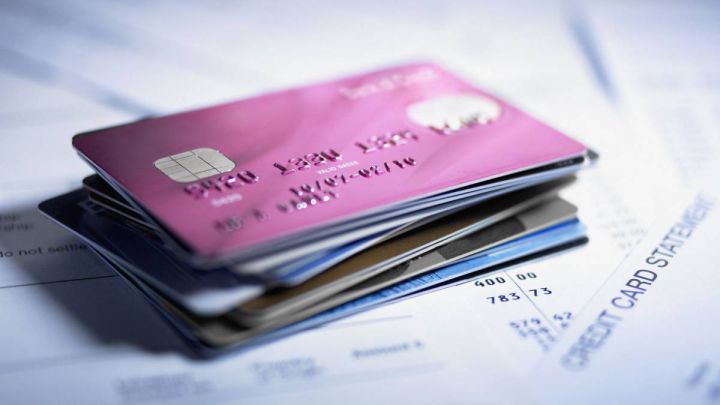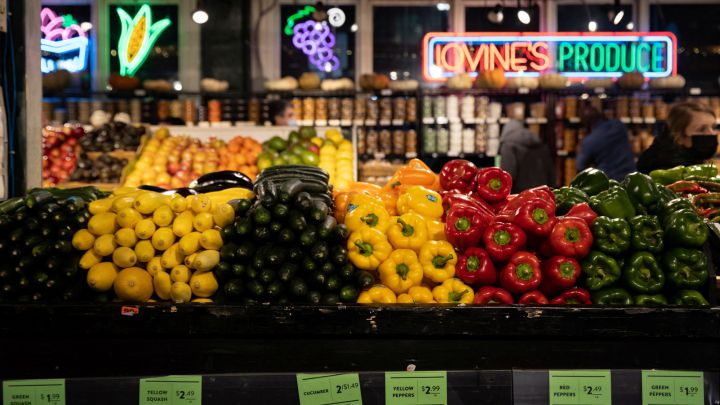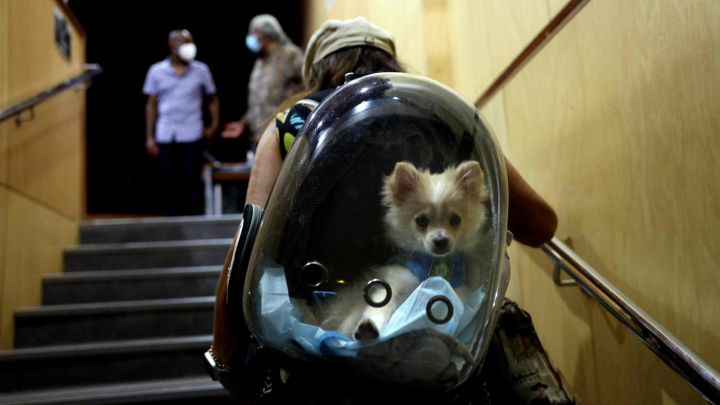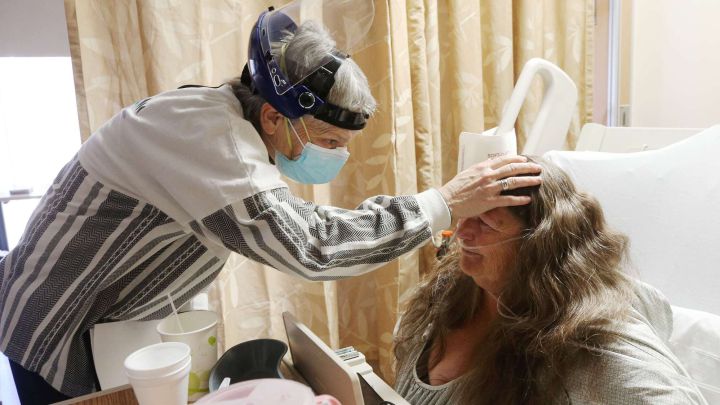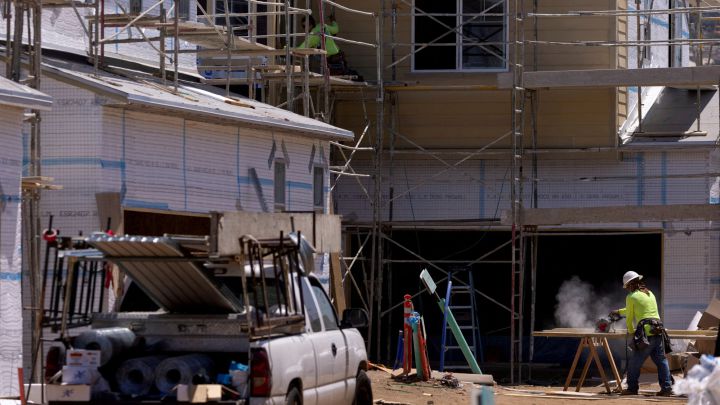Finance and money news: news summary 24 February
Breaking news and latest information from filing season 2022, including Social Security payments, the IRS tax return backlog and tax refund status.
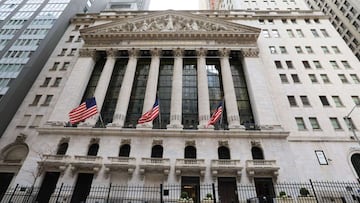
Show key events only
Personal finance and money news: live updates
Headlines
- Russia-Ukraine crisis weighs on US stock markets which recorded another day of loses
- Dow Jones Industrial Average down nearly nine percent compared to this time last year.
- White House expected to release an executive order this week that will impact those that hold cryptocurrency. What will it contain?
- IRS releases guidance on how to report income generated from cryptocurrency and other digital currencies in time for tax season.
- Many expect smaller returns compared to last year as many tax benefits have expired.
- States expand school lunch programs and other child nutritional programs as children return to the classroom.
- Mortgage rates will lock in, why is this happening in February?
Helpful links and information
- Do SNAP benefits expire or roll over month to month/year to year?
- How long does it take to receive your tax refund?
- What is Topic 152 on your tax return?
- With inflation still on the rise, many wonder if extra SNAP benefits will be distributed in February. What is the status?
- Which credit cards have low interest rates?
- Rental assistance still available in some states for tenants and landlords.
Related News
Like raising children, families can incur sizeable expenses taking care of their pets. The federal tax code gives US taxpayers with children and dependents several credits that they can take advantage of when filing, especially on 2021 tax returns.
Uncle Sam however, does not consider it the responsibility of the other US taxpayers to give you a break on your tax bill, except in certain cases, for your pets.
Here’s a look at when you can use your pets for tax purposes.
Relief and stimulus packages made covid-19 recession shortest in history
The Center on Budget and Policy Priorities examines how the policies in six covid-19 relief and stimulus bills, which authorized over $5 trillion dollars of investment combined, passed since the beginning of the pandemic helped to achieve the fastest recovery from a recession in history. At the same time the measures put in place were able to reduce hardship and poverty.
At the start of the pandemic, unemployment jumped to nearly 15 percent but two years on is now at 4 percent. Two years after the Great Recession unemployment remained at nearly 10 percent, largerly blamed on policies that although considered too big at the time were insufficient and ended too soon.
Biden to release oil from strategic reserve to ease gas prices
The conflict in Ukraine is expected to cause disruption to the supply of oil and gas from Russia. With shortages in the market already pushing prices per barrel to levels not seen since 2014 President Biden said he is working with other world leaders to release strategic reserves to lessen expected price hikes at the pump.
He also called on companies to do their part asking them not to use this moment to increase profit margins.
What to expect from your tax refund this year
The IRS has been hit by a "perfect storm" this year which could mean serious delays for tax refunds. Decades of budget cuts and staffing shortages from positions vacated by retirees not being filled with new hires were aggravated by pandemic-induced disruptions. This has all resulted in a historic backlog of around 24 million 2020 tax returns the agency is dealing with as it tries to process 2021 returns.
The IRS and experts advise to file 2021 tax returns electronically to get your tax refund faster. If you do have to submit a paper filing, be patient, it could be months before you see a refund.
Medicare covers a range of health services to beneficiaries in any living situation. However, like most health insurance plans, Medicare doesn’t pay for long-term care costs of residency at an assisted living facility or day-to-day custodial care.
Under specific circumstances, if a beneficiary requires a short-term stay for inpatient care in a skilled nursing facility that’s not merely custodial or long-term care, it may be covered by Medicare.
Russia-Ukraine war could push up inflation
As the US and its allies consider the next round of sanctions to impose on Russia after its full scale invasion of Ukraine, economist are trying to figure out how much those punsihments will affect already high inflation.
News of the military assault dove crude oil prices over $105 on Thursday. Western banks have begun denying letters of credit to purchasers of Russian oil.
Both Ukraine and Russia are major producers of wheat whose price leap to its highest since 2012. Ukraine is also a major producer of corn which saw its price jump and had the knock on effect of pushing up the price of soybeans.
Sanctions could prevent the export of metals such as aluminium, nickle and copper from Russia further exacerbating supply shortages that have been a major driver of inflation in the post-pandemic period.
The number of people locking in their mortgage rates have had a big rise at the start of 2022, as home-buyers prepare for a big increase later in the year.
A report from Black Knight says that rate locks have risen nearly 10 percent since December, suggesting buyers are aware that the current low locks need to be exploited before they become too expensive. To match this, there has been a near 20 percent increase in the amount of loans being taken out to afford down payments.
Oil buyers find credit lines cut off
The global oil market was thrown into chaos on Thursday after Russia invaded Ukraine, with top buyers of Russian oil struggling to secure guarantees at Western banks or find ships to take crude from one of the world's largest producers.
At least three major buyers of Russian oil have been unable to open letters of credit from Western banks to cover purchases on Thursday, four trading sources said, citing market uncertainty after the Russian invasion.
Russia produces every tenth barrel in the world and oil prices jumped to above $100 per barrel on Thursday, their highest since 2014, due to fears of disruptions.
The oil market is already suffering from tight supplies due to years of low investment and amid booming demand as pandemic-linked restrictions ease around the world.
"Banks are not willing to open LCs for the moment so it is a bit of a standoff," one of the sources said. He asked not to be named due to the sensitivity of the issue.
Letters of credit from the bank of the buyer are standard practice in commodities trading and guarantee the seller's bank that payment will be made in full and on time.
Top Russian oil buyers include Western oil majors such as BP and Shell, ENI, TotalEnergies, Equinor, Chevron and Exxon Mobil and trading houses such as Vitol, Glencore, Trafigura, Gunvor and Mercuria.
"If you start a job at Starbucks tomorrow, are you going to make a livable wage? "Absolutely not." Will you be able to afford to see a doctor? "Not at all." Unacceptable".
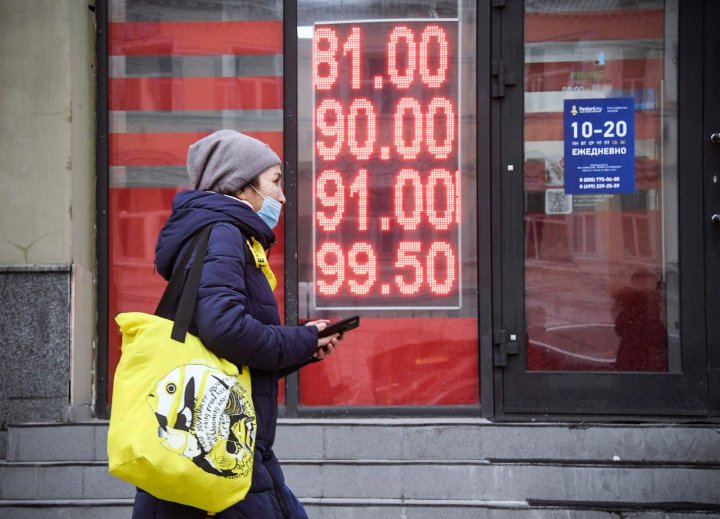
Oil rips past $100, world stocks slump as Russia invades Ukraine
Oil prices broke above $100 a barrel for the first time since 2014, stock markets slumped globally and the rouble hit a record low on Thursday after Russian President Vladimir Putin launched an invasion of Ukraine. Markets displayed all the predictable reactions. Europe's stock markets tumbled nearly 4% in frenzied selling and Wall Street opened down 2.5%, while some traders described Russian and Ukraine markets as 'untradeable' due to the sheer scale of the falls and Russia and Kyiv's central banks tried to step in.
The scramble for safety saw top-rated government bonds rally strongly along with other traditional storm shelters such as the dollar, Swiss franc, Japanese yen and gold.
Chaotic moves in Russia's markets saw the rouble weaken nearly 7% to an unprecedented 86.98 per dollar and there were record 40% falls on the Moscow stock exchange, which had been forced to suspend trading early on. Ukraine meanwhile was forced to suspend trading in its currency as its bonds crashed violently as investors bet that it could now default again, as it did after Russia's 2014 annexation of Crimea.
Fears Russia will now squeeze global energy markets saw Brent futures jump more than 8% past $100 a barrel for the first time since September 2014. Nearly 40% of the European Union's natural gas and 26% of its crude oil comes from Russia. With both Ukraine and Russia also big crop producers, wheat and corn prices surged more than 5%, while gold jumped more than 1.7% to its highest since early January 2021.
Taxpayers face interest rate rise from April
The Internal Revenue Service has announced that interest rates will increase from the second quarter of the calendar year beginning 1 April 2022. The rates are as follows:
4% for overpayments (3% in the case of a corporation)
1.5% for the portion of a corporate overpayment exceeding $10,000
4% for underpayments
6% for large corporate underpayments.
Under the Internal Revenue Code, the rate of interest is determined on a quarterly basis. For taxpayers other than corporations, the overpayment and underpayment rate is the federal short-term rate plus 3 percentage points.
Generally, in the case of a corporation, the underpayment rate is the federal short-term rate plus 3 percentage points and the overpayment rate is the federal short-term rate plus 2 percentage points. The rate for large corporate underpayments is the federal short-term rate plus 5 percentage points. The rate on the portion of a corporate overpayment of tax exceeding $10,000 for a taxable period is the federal short-term rate plus one-half (0.5) of a percentage point.
Russian stocks crash and ruble plunges to record low
Russian stocks crashed by more than 40% and the ruble hit a record low against the dollar on Thursday.
The Moscow market rout was triggered by news that Russian troops had launched an attack on Ukraine, a move that is likely to trigger a new wave of "full scale" sanctions aimed at President Vladimir Putin's inner circle and Russia's oil-dependent economy.
A broad offensive by Russian forces targeted military infrastructure across Ukraine as well as several airports. The assault began hours before dawn and quickly spread across central and eastern Ukraine as Russian forces attacked from three sides. Putin warned of bloodshed unless Ukrainian forces lay down their arms.
This year after cryptocurrency markets exploded in popularity after record-setting gains in value (which have since decreased) many will need to report their gains to the Internal Revenue Service (IRS).
Since 2014, the IRS has had rules on the books on how tax payers report income from "virtual currency" defined as "a digital representation of value, other than a representation of the US dollar or a foreign currency (“real currency”), that functions as a unit of account, a store of value, and a medium of exchange."
The key pipelines, ports and plants that could be hit by war
As Russian forces attack targets across Ukraine, commodity traders are watching the country’s vast network of infrastructure that’s key to supplying gas, crops and steel to Europe and beyond.
Moscow has confirmed it is targeting military facilities across the country and Ukraine’s border guard said it was being shelled from five regions, including from Crimea in the south and Belarus to the north.
The Donetsk region is home to a port that ships out grains and metals, as well as major steel mills. Further away from the Russian border, there are more important terminals feeding the world’s commodity needs. Huge amounts of gas are piped from Russia though Ukraine to the European Union.
Rich, fertile soils have helped Ukraine become the second-largest grain shipper and the Black Sea region to be known as the world’s breadbasket. Corn is concentrated in fields in the center and north, wheat and barley in the south and sunflowers in the east, US government data show. They are trucked, railed and barged to ports for sale to Asia, Africa and the European Union.
Sanctions on Russia will affect US consumers too
The US and its allies will be imposing more sanctions on Russia after it invaded Ukraine early Thursday morning. The administration has been trying to prepare the US public for the knock-on effect they could have on gas prices. After Russian troops began their assault the price of a barrel of oil crossed the $100 mark for the first time in seven years.
The Supplemental Nutritional Assistance Program (SNAP), formerly known as Food Stamps, is one of several programs administered by the US Department of Agriculture’s Food and Nutrition Service agency. SNAP benefits are managed by each state’s public assistance agency and although similar, each state has its own rules.
Likewise, the name of the program and the state agency that recipients need to contact can vary depending on where you live. This can make it confusing for the over 41 million people across the United States who receive nutritional assistance through SNAP as of 2021.
Stocks sink on Thursday
Global stocks and equity futures are tumbling as Russia attacks Ukraine, while bonds and oil are on the up.
Expiration of advanced payments has drastic impact for low-income families
Last year the American Rescue Plan introduced monthly Child Tax Credit payments for the first time, providing a monthly direct payment worth up to $300 per child from July to December. However, after Congress was unable to extend the programme, the monthly payments were not continued into 2022 and figures show that it has brought about a considerable rise in the number of US children living in poverty.
There are some efforts in Congress to see the monthly payments reinstated, but as of yet there is no legislative proposal that has received enough support to pass the Senate.
Each month millions of households, around 9.2 percent, receive Supplemental Nutritional Assistance Program (SNAP) benefits. For those who find themselves with a SNAP balance remaining at the end of the month, fret not, the balance will carry to the next month. Read more for information on the historic SNAP benefit increase that became permanent in October 2021.
Child poverty increases after child tax credit payments end
Studies released in late 2021 found that the child tax credit, distributed from July to December made important dents in rates of child poverty in the United States. However, now that the payments that have ended, around 3.7 million children have fallen back into poverty. The Center on Poverty and Social Policy at Columbia University, published a report that showed an increase in the child poverty rate from "12.1 percent in December 2021 to 17 percent in January 2022 — the highest rate measured since the end of 2020."
Families will still be able to claim half of the value of the credit when parents or guardians file their taxes, but at this point, Congress has passed no bill to extend the credit's 2021 structure.
Good morning and welcome to our financial aid blog!
We'll be bringing you all the latest news and information on tax season 2022, including information on IRS delays, the child tax credit, and other benefits and credits that you should keep in mind when submitting your return.
- Joseph Biden
- Inflation
- Recession
- Covid-19 economic crisis
- Science
- Economic indicators
- Coronavirus Covid-19
- Economic crisis
- Taxes
- United States
- Pandemic
- Coronavirus
- Recession
- Economic climate
- Virology
- Outbreak
- Infectious diseases
- Tributes
- North America
- Diseases
- Microbiology
- Public finances
- Medicine
- America
- Economy
- Biology
- Health
- Finances
- Life sciences
